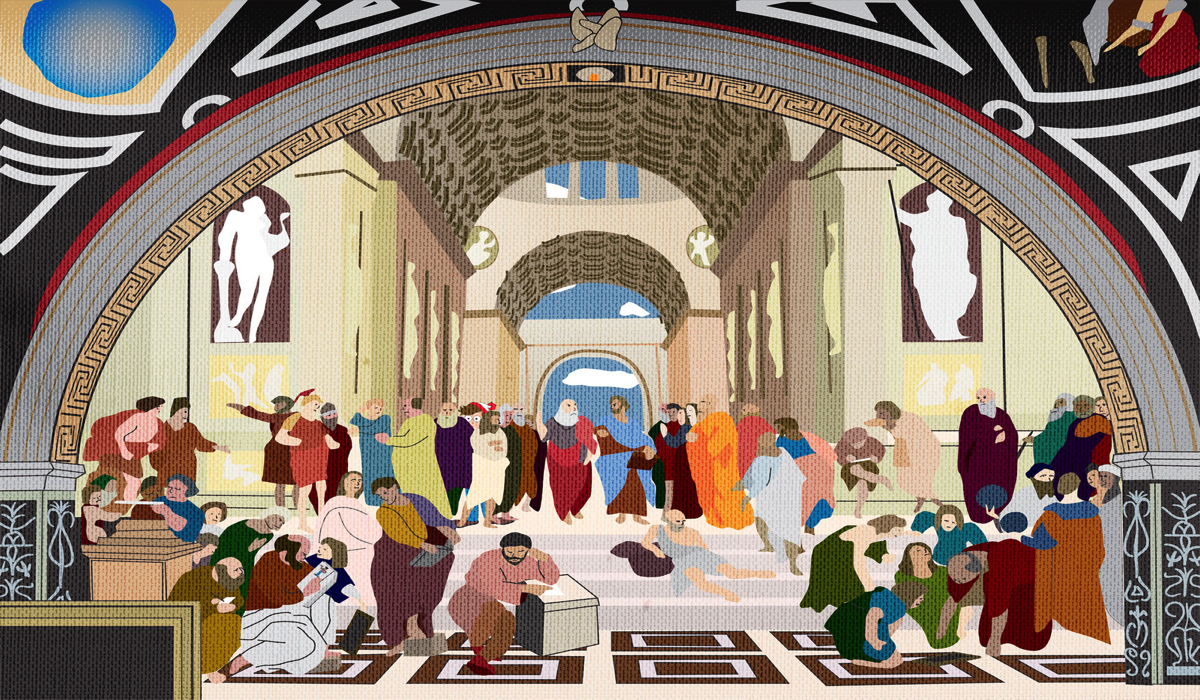“Nel Fedro di Platone, Socrate diceva che la scrittura era una minaccia per la cultura perché a un libro non si possono fare domande. A Socrate mancava Internet..”Questa provocazione di Luciano De Crescenzo ci fa comprendere appieno l’essenza di Internet, network di idee e notizie che soddisfa la curiosità dell’internauta e avamposto anarchico dove nativi e sognatori digitali danno libero sfogo alla propria creatività. Un’essenza rappresentata alla perfezione dal wireless mesh network, il web parallelo ‘fai da te’ che sta rivoluzionando il concetto di rete. Questo sistema sfugge alla censura e alle logiche di mercato, ha una velocità 30 volte superiore all’attuale ADSL e porta Internet negli angoli più remoti del pianeta grazie al sistema di rete ‘a maglie’: non più server ne provider, ma solo antenne e dispositivi wifi in collegamento tra loro. “Vogliamo costruire un network aperto, libero e neutrale – ha raccontato a Repubblica.it Roger Viñas, membro di Guifi, mesh network spagnolo tra i più grandi al mondo – certo, ci sono ancora molti passi da fare: migliorare i dispositivi, rendere più facile il loro uso. Però le sfide principali sono due: convincere le persone e combattere le lobby”. Questo sistema non dipende da infrastrutture, può essere incrementato da ogni singolo utente che immette nella rete un nuovo dispositivo e va a formare un sistema orizzontale di condivisione e manutenzione a costi ridotti. Nonostante l’attenzione mediatica sia rivolta soprattutto verso una sua presunta elusione dei controlli dell’NSA, in questi anni il sistema ‘mesh’ ha avuto implicazioni sociali e politiche di proporzioni globali: nel 2011 in Egitto, alla vigilia della deposizione di Mubarak, un network parallelo e clandestino ha trasformato i computer in routers permettendo di organizzare rivolte e manifestazioni anti-regime nonostante fosse stato appena chiuso Noor, l’ultimo provider rimasto funzionante. Chi accusa il sistema ‘mesh’ di foraggiare hackeraggio e pirateria forse teme che la rete possa sviluppare la sua inclinazione ad esser libera da catene e da vincoli pseudo intellettuali, corporativi, economici. Proprio quei vincoli che in filosofia erano difesi dai sofisti e odiati da Socrate.
ENGLISH VERSION
“In Plato’s Phaedrus, Socrates said that writing was a threat for culture because you can’t ask questions to a book. Socrates didn’t miss the Internet.”
This provocation said by Luciano De Crescenzo makes us totally understand the Internet’s essence, a network of ideas and news that satisfies the Internet users’ curiosity and anarchic outpost where natives and digital dreamers give space to their own creativity.It’s an essence that is perfectly represented by the wireless mesh network, the parallel “self service” web that is revolutionizing the concept of “net”. This system escapes from the censorship and the market logic, it has a speed that is 30 times more than the actual ADSL and it takes the Internet in the most hidden places of the world thanks to its “mesh” system: not server nor provider, but only antennas and Wi-Fi devices connected between them. “We want to build an open, free and neutral network, this is what Roger Vinas, Guifi member, Spanish mesh network and also one of the biggest, said to Repubblica.it – of course, there are still many things to do: improving devices, making them easier to use. But there are 2 main challenges: convincing people and fighting the lobbies. This system doesn’t depend on infrastructures, it can be improved by every single user who inserts on the net a new device and contributes to give form to a horizontal system of sharing and low-cost maintenance. Despite the media attention about a supposed elusion ofNSA controls, in these years the “mesh” system has had social and political implications of global proportions: in 2001, in Egypt, on the eve of Mubarak’s deposition, a parallel and clandestine network transformed computers in routers permitting to organize anti-regime revolutions even if Noor, the last functioning provider, had just been closed. Who accuses the “mesh” system of bribing, perhaps fears that the net could develop its inclination of being free from chains and pseudo intellectual, corporative and economic bonds. Those bonds that in philosophy were defended by the sophists and hated by Socrates.
Traduzione a cura di Francesco Campagna

